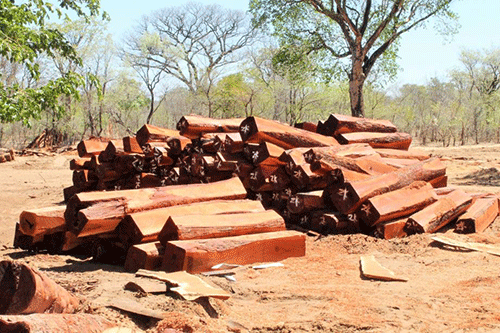Forests and other land vegetation produce between 20 and 30% of the oxygen in the air that humans breathe.
However, deforestation, particularly in northern and northeast Namibia, is largely caused by people trying to earn a living through the sale of poles, firewood and other forest products, which are readily available throughout the year.
Environment and tourism minister Pohamba Shifeta yesterday stressed threats to Namibian forests can only be minimised through a combination of measures.
These, he says, include law enforcement and public awareness and education to inform members of communities to shun tendencies that destroy the country’s natural resources.
Shifeta made the remarks when he launched the documentary series, titled ‘The forests of a desert land: stories from Namibia’.
He, therefore, implored everyone to guard against the unsustainable use of Namibia’s forests.
The documentary series is born out of a collaborative effort between the ministry and the Hanns Seidel Foundation (HSF).
It is aimed at increasing awareness about the importance of forests as ecosystems, to people and the environment.
Shifeta reminded those destroying resources that forests provide many local communities with livelihoods, medicines, nutrition and refuge.
The production of the documentary series features members of the local community narrating their own stories about the importance of forests for their sustenance.
The stories are told by a schoolgirl, a marathon runner, and an old, wise man – all of them talking that trees are extremely essential.
He emphasised human beings need healthy forests for survival, adding healthy forests serve as natural filters, providing clean air and water – and they are havens of biological diversity.
“Healthy forests help to regulate our climate by influencing rainfall patterns, cooling our living areas, and absorbing greenhouse gas emissions such as carbon dioxide that cause climate change,” he stated.
Since its independence, Namibia has been commemorating the International Day of Forests along with other environmental days, such as World Wetlands Day and World Water Day on 1st April 2022.
With the observation of this day, countries are encouraged to undertake local and national efforts to organise activities involving forests and woodlands, including tree planting campaigns.
Therefore, Shifeta said, they used the day to raise awareness – not only about the significance of forests and woodlands but also to highlight numerous threats to their existence, including deforestation and over-exploitation of forest and wood resources.
They also distributed tree seedlings to various schools for planting purposes.
– anakale@nepc.com.nA


